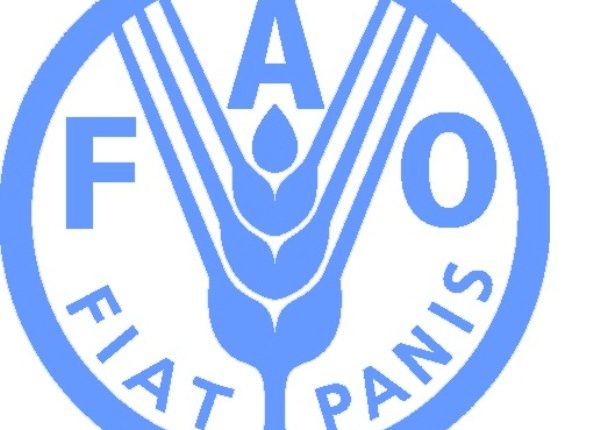Food and Agriculture Organization of the United Nations (FAO) Strengthening Zimbabwe’s Food Safety Standards through National Codex Technical Committee Training
From 3 to 7 February 2025, the Food and Agriculture Organization of the United Nations (FAO) and the Government of Zimbabwe conducted a training session for 20 members of the National Codex technical committee. The training focused on knowledge dissemination, capacity building, and the adoption of Codex standards.
“The training is part of the Codex Trust Fund 2 project, which seeks to rejuvenate Codex Alimentarius activities in Zimbabwe by expanding knowledge and understanding of Codex at national level among key policy makers and influential stakeholders,” explained James Mugombi, the Codex Trust Fund 2 focal point in Zimbabwe.
Patrice Talla, the FAO Subregional Coordinator for Southern Africa and FAO Representative in Zimbabwe, added, “By training technical officers from both the government and private sector, FAO is enhancing Zimbabwe’s national capacity to develop food standards and regulations based on Codex. This will increase the uptake and use of Codex standards, guidelines, and codes of practice in the country.”
The four-day workshop was attended by participants from both the public and private sectors. It focused on the National Codex Technical Committee on Fresh Fruits and Vegetables (CCFFV) and the National Codex Technical Committee on processed food items, food additives, and fats and oils.
Fredy Chinyavanhu, the Government of Zimbabwe Codex Contact Point (CCP), emphasized the importance of the training in enhancing understanding of Codex food safety standards and guidelines. “The overall objective of the Codex technical committee’s meetings is to bring together technical experts from the private and public sectors to build their capacities for effective preparation prior to participating in Priority Codex committee meetings,” he said. “The government can leverage this network to facilitate ongoing collaboration between regulators, industry, and other key players, promoting a unified approach to implementing Codex standards.”
“In previous Codex sessions, Zimbabwe’s participation in international food standards setting was weak due to limited involvement by national stakeholders. This training will ensure that Zimbabwean stakeholders are aware of and know how to participate effectively in international food standards setting,” added Claid Mujaju, chairperson of the National Codex Technical Committee on Fresh Fruits and Vegetables.
Mutsa Chatyoka, a Farm Feeds and Remedies Regulations Officer, highlighted the positive impact of the training on food safety and quality in Zimbabwe. “This training has improved our understanding and application of Codex standards, which will enhance the safety and quality of food products,” she said. “Regulators will gain knowledge on standards to be enforced on food businesses and products.”
Fredy Chinyavanhu also mentioned, “The training has helped us gather views from the trained stakeholders and others. We will consolidate these views as a national Codex committee to develop true Zimbabwean positions on agenda issues for upcoming global Codex meetings.”
Government’s commitment to continuity
The government is committed to prioritizing budgetary allocations for food safety monitoring and enforcement work. Allocating sufficient financial resources is crucial to implementing the Codex-aligned systems and maintaining effective oversight. “The goal is to include Codex work in future budgets to ensure continuity of programs beyond the FAO Codex 2 project,” said Josephine Manda, Deputy Director at Ministry of Industry and Commerce and Chairperson to the National Codex Technical Committee on processed food items, food additives and fats and oils.
The country’s Codex Contact Point (CCP) emphasized that material, financial, and human resources will be allocated to ensure consumer safety and health. “We will continue to lobby for prioritization of budgetary allocation, as well as material, financial and human resources, to food safety and quality monitoring and enforcement. This is essential for ensuring consumer safety and health as well as facilitation of international food trade”.
Both public and private food testing laboratories will be mobilized to contribute data for science-based evidence, supporting the country’s positions to the Codex Alimentarius standards setting processes.
“To sustain the momentum from the initial training, we commit to providing regular, targeted training programs. This will ensure Codex knowledge and skills are continuously updated and disseminated across relevant government departments and the private sector,” said the country’s Codex Contact Point (CCP).
Stakeholder perspectives on training
Josephine Manda, a Senior Biosafety Officer at National Biotechnology Authority of Zimbabwe, emphasized the importance of the training., “The training was crucial for me as it enhanced my knowledge of Codex systems and their technical aspects, enabling me to participate meaningfully at Codex workshops and events,” she said.
Mutsa Chatyoka expressed her intention to apply the knowledge and skills acquired during the training to enhance her participation in national food safety standard-setting processes. “I aim to ensure alignment with Codex Alimentarius Commission guidelines and contribute to the development of national policies and regulations related to food additives,” she noted.
By strengthening the capacity of technical experts and aligning national standards with Codex guidelines, the Codex Trust Fund 2 project aims to rejuvenate and enhance food safety and quality in Zimbabwe, ultimately benefiting consumers and facilitating international trade.
“The government can use the enhanced understanding of Codex standards and guidelines gained from the training to update and align national food safety regulations and policies. This will ensure Zimbabwe’s food safety framework is harmonized with international best practices,” Patrice Talla stated.
Distributed by APO Group on behalf of FAO Regional Office for Africa.


